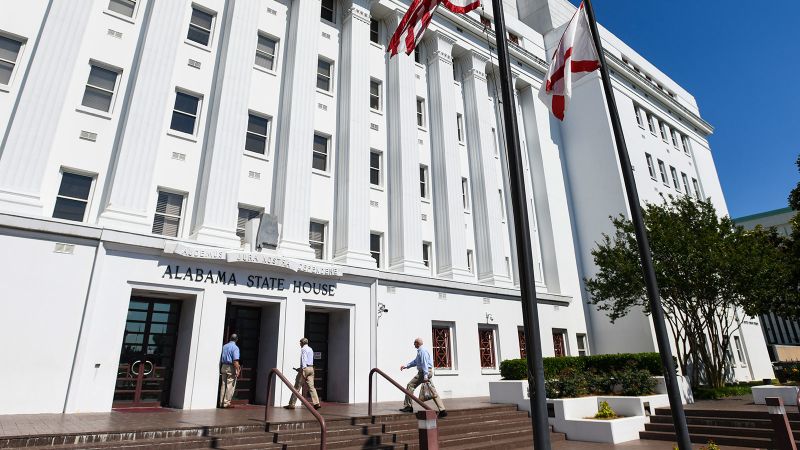Alabama officials have passed legislation that will allow President Joe Biden to appear on the state’s November ballot, giving Democrats more time to formally nominate him after their national convention. Governor Kay Ivey signed the bill into law, pushing back the state’s certification deadline to accommodate the Democratic Party’s schedule. The measure was passed by the state House and Senate, both of which are held by Republicans.
Wes Allen, Alabama’s secretary of state, had previously warned Democrats and the Democratic National Committee that their national convention timing could cause issues with the state’s certification deadline. Ohio had also raised concerns about their deadline conflicting with the convention dates, prompting state officials to consider potential legal battles if necessary. In the past, similar issues have been resolved through legislation or provisional certifications, as was the case in Alabama four years ago.
Ohio, which has a 90-day deadline for submitting nominee names, is facing a similar issue with the Democratic convention dates. State officials have stated that they will not accept provisional certification, leaving the path forward uncertain. However, there is confidence that Biden will be on the ballot in Ohio, either through legislative action or potential federal court involvement. The precedent set by the US Supreme Court in allowing Trump on the Colorado primary ballot despite legal challenges provides assurance for Biden’s inclusion.
The issue of certification timeline conflicts has arisen in multiple states, with lawmakers traditionally resolving the matter through legislation to adjust deadlines. In Alabama, the legislation signed by Governor Ivey has effectively addressed the concern raised by Secretary of State Allen. The potential for legal battles and uncertainty surrounding certification deadlines underscore the importance of timely action by state officials to ensure that presidential nominees can be properly represented on the ballot.
The involvement of federal courts in determining ballot eligibility highlights the significance of constitutional and legal considerations in the election process. Republican leaders in Ohio, such as State Senate President Matt Huffman, have expressed confidence in Biden’s presence on the ballot, whether through legislative means or court intervention. The overarching goal is to uphold the democratic process and ensure that voters have the opportunity to choose among all eligible candidates in the upcoming election.
Overall, the developments in Alabama and Ohio regarding certification deadlines and ballot access for presidential nominees reflect the complex interplay between state requirements, party conventions, and legal considerations. The resolution of these issues through legislative action, court rulings, or provisional certifications underscores the need for proactive and collaborative efforts to uphold the integrity of the electoral process. As the election draws closer, ensuring that all candidates are properly represented on the ballot remains a critical priority for state officials and party leaders alike.


